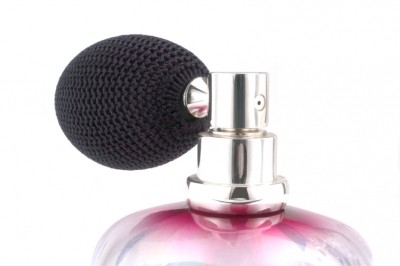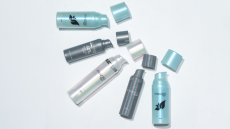Can DNA-based seals and silica microtag solutions stop global counterfeiting?

Cosmetics Design spoke with Shelke for further insight into the technology behind these infinitesimal tags and the relevance they have for today’s cosmetics industry.
Tag technology
DNA-based product seals are coming to market thanks to partnerships like the one announced this week between ITW Pillar Technologies and Applied DNA Sciences.
The companies have teamed up on a tamper-proof induction sealing solution that “has the benefit of protecting the tamper-proof seals on original packaging, and subsequently protect original product with the forensic proof needed to demonstrate that the quality and integrity of product are not compromised,” according to the media release announcing the partnership.
“The technology uses plant-derived double strand DNA for a precision-engineered mark that has not yet been broken or copied,” Shelke told Cosmetics Design.
“Its sophistication and affordability have paved the way for millions of DNA marks in the public domain on a wide range of objects,” she remarked from her vantage point at Corvus Blue, a food science and research firm retained by food, supplement, cosmetic, and allied enterprises for competitive intelligence, expert witness services, new product/technology development, and rapid market realization of honestly healthful ingredients.
The global community is ready for these sorts of tagging technologies. “Last year, the World Economic Forum named TruTag Technologies (Hawaii) the 2014 Technology Pioneer for designing, developing, and deploying edible inert security silica tag for traceability and authentication of food, drugs, electronics, industrial components, and consumer products,” noted Shelke.
Much needed
Counterfeiting in cosmetics, supplements and related industries is an enormous criminal industry. “Traceability, even with the most disciplined and documented supply chains can be dicey, especially in the case of products with many ingredients or many parts,” says Shelke, who has worked since 1986 from end-to-end in ingredient supply chains on the global front.
“The complexity and uncertainty of origins are further confounded with the consolidation of suppliers and manufacturers, as is the trend today,” Shelke explains.
New, tiny tracking solutions like DNA-based seals and silica microtags can help prevent the many consequences of counterfeiting, which range from economic consequences and disruption of the market to health and safety hazards for the consumer as well as from harm to the original product manufacturer to stakeholder harm up and down the supply chain, according to Shelke.
Common good
Tamper-proof tags will improve the business and safety of the personal care industry from end-to-end if done right.
“Any technology that can help counter counterfeiting by improving tracking and authentication with product flow informatics, assure product quality and authenticity, and be versatile for application across categories AND size of enterprises (producers, manufacturers, retailers, etc) is bound to succeed today,” says Shelke.













